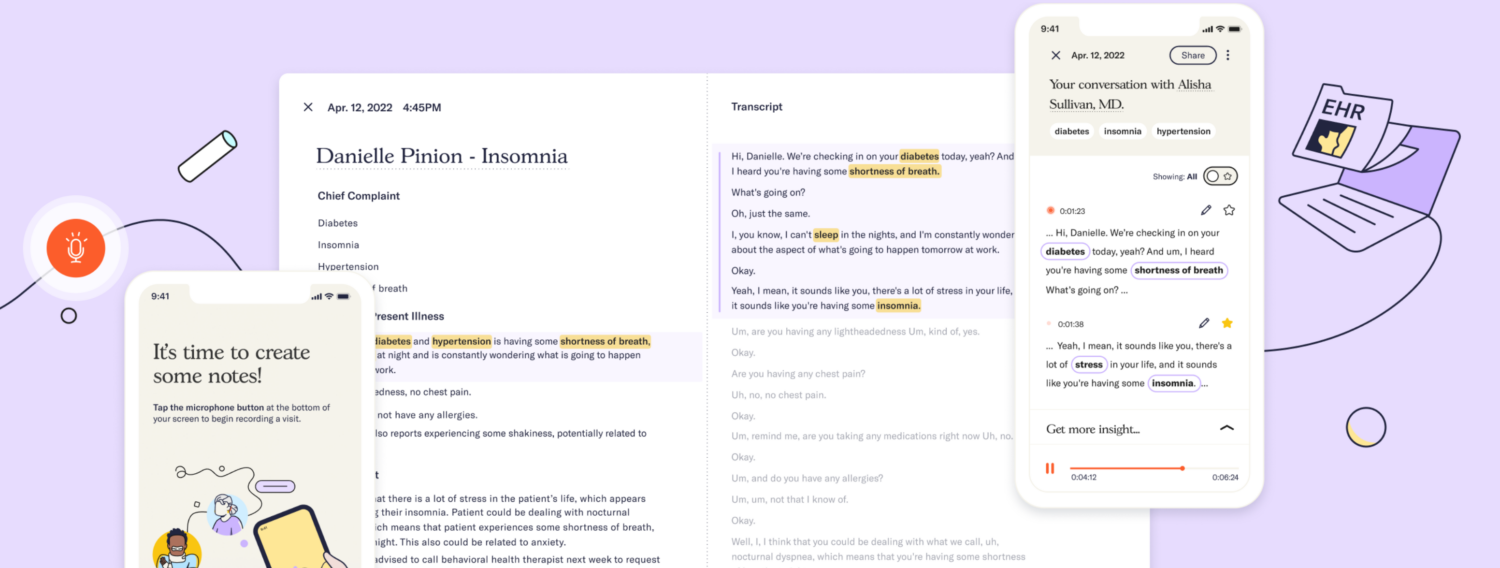
What You Should Know:
– Abridge, the leader in medical conversation artificial intelligence (AI), today announced an oversubscribed $12.5M Series A-1 led by Wittington Ventures.
– The round also had participation from all existing investors including Union Square Ventures, Bessemer Venture Partners, Pillar Venture Capital, and UPMC Enterprises, and new investors including Turing Award winner Yoshua Bengio, and Whistler Capital.
Automated Solutions to Combat Physician Burnout
Provider burnout continues to be a serious issue for healthcare systems, especially in the aftermath of the pandemic. National studies suggest that more than 50 percent of providers experience burnout-related symptoms, and systems are anticipating healthcare staffing shortages that will cost $4.6 billion annually. Abridge aims to change that through its innovative tech-first service that automatically generates structured notes from any type of conversation — from in-person visits to telehealth and chat conversations.
Abridge’s enterprise-focused documentation solutions seamlessly structure and summarize information from any medical conversation, making it easier for systems to reduce provider burnout while also increasing patient satisfaction. Armed with a proprietary dataset derived from more than 1.5 million medical encounters and more peer-reviewed papers about medical conversation AI than any other entity, Abridge has already helped more than 2,000 clinicians practice at the top of their licenses and 200,000 patients stay on top of their health.
While current solutions on the market are anchored on expensive human scribes or wake-words that force providers to speak unnaturally, Abridge works with natural conversations and existing health technology infrastructure. For healthcare enterprises looking to reduce burnout, improve efficiencies, and enhance care delivery, Abridge offers:
1. Automated, real-time documentation: Abridge algorithms generate the clinical documentation from the conversation, accurately and within a minute of the conversation.
2. Structured insights: Algorithms extract medical information and map back to ontologies and codes, making it easy to get immediate, actionable insights at the encounter and population level.
3. Evidence-based notes: All insights are automatically mapped back to the parts of the conversation where they happened, improving coding compliance for billing as well as value-based initiatives.
“I became a cardiologist to help my patients improve their health, but the reality was that I was spending more time on my notes than with my patients,” said Dr. Shivdev Rao, CEO and Founder of Abridge. “Abridge is the solution I always wanted myself, as a physician and as a patient — an AI-based service that leverages conversations I had with my patients to not only draft my documentation but also with the capability to send detailed care plans to them and improve the quality of their care.”
